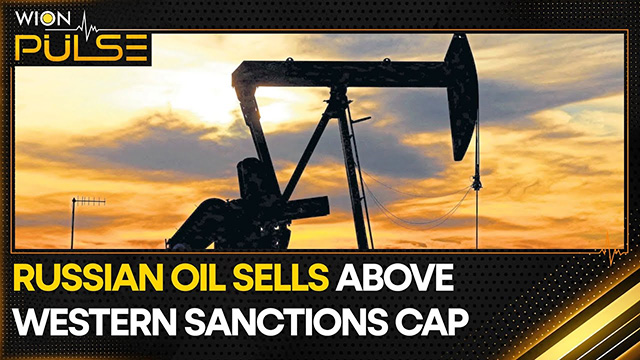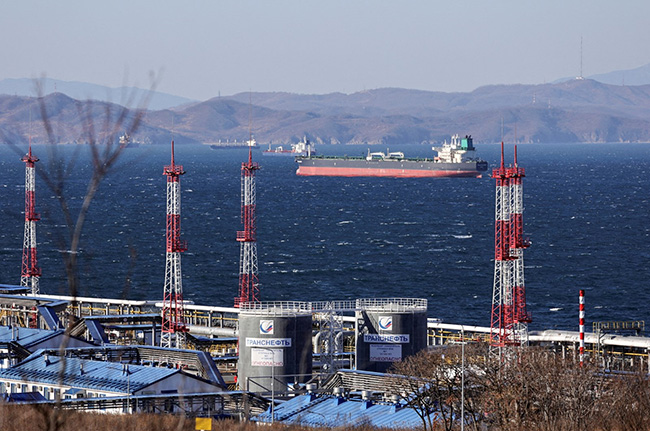
Russia notched a victory in the fight for influence over global oil markets in recent days when the price of the country’s most coveted crude traded above a Western price cap, confesses ‘Wall Street Journal’.
It is the first time that the price for its flagship Urals grade of oil has breached the $60-a-barrel limit since the U.S. and its allies introduced the novel sanctions policy last December, according to commodities-data firm Argus Media. It is a sign that the Kremlin has succeeded, at least in part, in adjusting to the restrictions.
Higher prices could bolster Russia’s oil-export revenues, which last month dropped to just over half their level from a year ago, according to the International Energy Agency.
One sign that the financial squeeze on Moscow might be relenting: The discount for Urals, compared with benchmark Brent, has narrowed to $20 a barrel. The gap is still far wider than before the war, but it has halved since January.
Output cuts by OPEC+, which Moscow signed up to, have also helped push Russia’s crude prices above the cap. Urals — named after the mountainous, oil-rich region — got an extra boost from high demand in Asia, where Russian producers are elbowing aside Saudi oil.
Climbing prices suggest Russia’s push to assemble an alternative network of tankers to which sanctions don’t apply is eroding Western influence over its prize export, said Sergey Vakulenko, an analyst at the Carnegie Russia Eurasia Center and former oil executive in Russia.
“This was an evolutionary process, and now we just see its results,” said Vakulenko. “Russian oil companies…put quite a lot of effort into staying in business and earning money. They have proven themselves to be capable operators.”
Traders said Russian producers recently showed little desire to negotiate prices at which Western players could stay in the market. That is a shift since Urals last neared $60, in April.
Companies in the Group of Seven advanced democracies are allowed to transport and insure Russian crude only if the price is below $60 a barrel. There are separate caps for refined products. The idea is that Moscow will sell petroleum at lower prices because it needs Western services to export its oil.
A bigger challenge for the sanctions is the new logistics system that Russia and companies in its orbit began to build, consisting of tankers owned, insured and chartered outside the West.
Sales of secondhand tankers have swollen the shadow fleet—industry parlance for tankers that shuttle petroleum from sanctioned nations. In the second quarter, five times as many tankers worked with sanctioned producers than at the end of 2021, according to ship-tracking firm Vortexa. Almost 80% of those ships have plied the Russian market.
 Photo: Reuters
Photo: Reuters
Russia is chipping away at the effectiveness of Western sanctions on its petroleum trade. Urals is trading at the highest price this year and at ever-smaller discounts to international markets, informs Bloomberg.
The nation’s top export grade rose to $62.92 a barrel at the Baltic Sea port of Primorsk on Friday. That’s the highest since before the European Union banned imports and joined the Group of Seven in imposing a $60 price cap on Russian supplies in December.
The rally means Urals — either at the point of export in the Baltic Sea, or at the point of delivery in India — is trading at ever-smaller discounts to international markets.
It costs around $7.5 million to transport a standard-sized cargo of Russian oil to China from the Baltic Sea, Argus Media data show. That would have been a very high delivery cost at almost any other time in history.
Even so, with Urals now approaching $74 a barrel by the time it reaches India, the grade costs just $6.65 less than Dated Brent, a benchmark for physical oil trades.
That’s the smallest discount since Argus began assessing a delivered-to-India price in late February. Point-of-export prices are more marked down, but those discounts are also shrinking.
read more in our Telegram-channel https://t.me/The_International_Affairs

 11:28 26.07.2023 •
11:28 26.07.2023 •






















